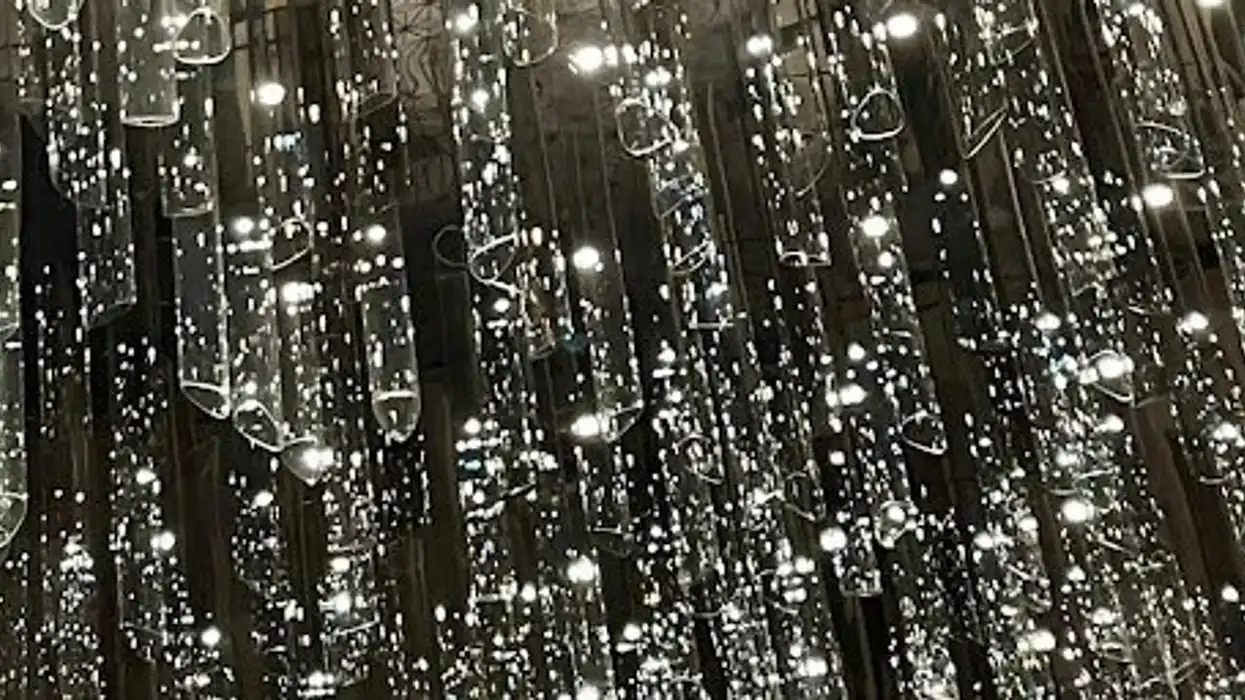Schmidt is a syndicated columnist and editorial board member with the St. Louis Post-Dispatch.
In the midst of the darkness that is our politics and ongoing threats to democracy, I found light while sitting in the Grand Ballroom of The Conrad Hotel in Washington, D.C.
There were two “conservative” conferences taking place in D.C. on the weekend of Feb. 23-25: the Conservative Political Action Conference (CPAC) and the Principles First 2024 Summit.
I had the pleasure of attending the second one. The three-day grassroots summit was focused on rebuilding principled leadership that serves our country — not partisanship or personality. The summit’s theme was “Conserving America’s Liberal Tradition.”
Listening to the variety of speakers at Principles First, I caught myself looking up at the chandelier. It had a hundred or so cylinders hanging next to each other in a large rectangle. The cylinders were of varied lengths and there were several different shades of glass. Each cylinder had a light in the center – at its core, if you will. Because each glass cylinder was hanging next to another one, their individual lights reflected on each other. This configuration produced an abundance of illumination and was absolutely beautiful.
This chandelier serves as a metaphor for Principles First. Imagine each glass cylinder as an individual and the primary light a principle or set of principles that each person in that room held dear. The reflections of light caused the entire room to glow, extending beyond each individual cylinder. One couldn’t help but be attracted to its radiance.
In 2019, founder Heath Mayo began organizing Americans on the right and center-right who were concerned about the health of American democracy. He started a series of meet-ups around the country and then envisioned bringing together those grassroots leaders from across the country to offer a positive vision for advancing principled conservatism in the United States. That movement grew into what is now known as Principles First.
Mayo describes the idea of principle as anchoring our politics to core values and ensuring that those we elect today wield power tomorrow according to some blueprint larger than themselves. “Principles define who we are, what we believe in, and the type of country we’ll become. That’s why we choose to put them first — before politicians and before party.”
The organization identifies 15 principles as a part of its commitment to holding our government and ourselves to a higher standard:
- Integrity, character and virtue matter.
- Every person has dignity, quality and worth.
- Truth, honesty, rationality and facts are non-negotiable.
- The Constitution and the rule of law are paramount.
- Our government is a limited one with enumerated powers.
- Congress writes laws, the executive executes laws and the courts interpret laws.
- Government closest to the people is most accountable.
- People reach their full potential when they are free.
- Free and functioning markets deliver prosperity.
- Equality of opportunity, not equality of outcomes.
- Government must responsibly steward resources for the next generation.
- Civic associations, faith communities and families should be the primary engines of our culture – not the state.
- Strong families are the building blocks of society.
- Sovereignty is critical to self-government.
- America's role in the world is unique and important.
The various speakers at the conference touched on one or more of those 15 principles. Each of the speakers also demonstrated that during some point in their careers or in their life, they put “principles first.”
Despite using light as a metaphor, the people in that ballroom were under no illusion that they have a home in this Republican Party. They have been exiled and are now considered RINOs (Republicans In Name Only) and are deemed globalists for supporting Ukraine or for pushing back against authoritarianism.
While this small band of scrappy idealists may be a minority within the Republican Party, they hold much power in the broader electorate. These are the voters who determine elections. And the Principles First movement is growing. The fourth summit roughly doubled in size from last year, bringing in over 600 attendees from 45 states.
The goal and hope of the summit is that individuals would leave D.C. with their lights shining a little brighter, go back home to their communities and inspire other individuals to join them, resulting in a focal point of luminescence.
Interestingly enough, the symbol for Principles First is a lighthouse. So if those 15 principles spark something in you, look towards the beacon of integrity.




















Trump & Hegseth gave Mark Kelly a huge 2028 gift